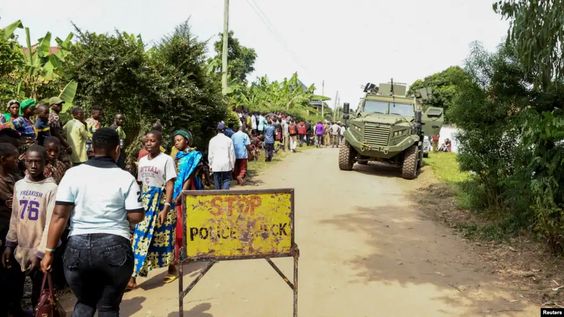Africa
Uganda Sends More Soldiers to Hunt Down Attackers Who Killed 37 Students

Assailants from a group with ties to the Islamic State massacred at least 37 pupils from secondary schools in western Uganda on Sunday, prompting Ugandan President Yoweri Museveni to dispatch extra troops to the area.
At Lhubirira Secondary School in Mpondwe, close to the border with the Democratic Republic of the Congo, rebels from the Allied Democratic Forces (ADF) slaughtered the children late on Friday.
Six students were also kidnapped by the attackers, according to the military and police, who then escaped into the Virunga National Park on the other side of the border. Unknown is what will happen to them.
The ADF launched their uprising against Museveni in the 1990s from Rwenzori Mountain, where Museveni claimed additional soldiers had joined the pursuit.
In a statement, he declared, “We are now deploying more troops to the region south of Rwenzori Mountain.”
Thus, their action—a cowardly, desperate act of terrorism—will not be able to save them. As we carry out our ongoing hunting operations on the Congo side, we are sending additional personnel to the Uganda side.
The death toll was reported as 42 on Saturday by the government-run New Vision newspaper and 41 by the privately owned NTV Uganda television. 39 of those slain, according to New Vision, were students, and some of them died when the terrorists detonated a bomb as they fled.
The United Nations, the African Union, and the Intergovernmental Authority on Development in East Africa were among the organizations that condemned the attack on a global scale. The attack left Ugandans in disbelief.
“Parents all throughout the nation, please don’t panic; our kids are safe and they will stay secure. The First Lady and Minister of Education, Janet Museveni, warned late on Saturday that the terrible people who are attempting to damage our children “are evil people and they will not succeed.”
Museveni promised that the government will look into any oversights that might have contributed to the attack.
Who raised the alarm, and when? What actions did the security personnel in the area take? Why didn’t we have any intelligence on this splinter organization, etc., from our people on the Congo side? he said, Museveni.
The Ugandan military mostly overcame the ADF, but some of its members escaped into the vast forests of eastern Congo, where they have since continued their insurgency by attacking military and civilian targets in both Congo and Uganda.
A community in eastern Democratic Republic of Congo was attacked by the ADF in April, resulting in at least 20 fatalities.
Reuters
